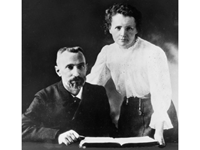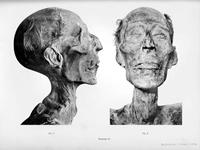According to theoretical physicist Rajendra Gupta of the University of Ottawa in Canada, a retired cosmological theory should be given a second chance to explain anomalies in our universe.
By combining the current theory of an expanding universe with an extreme explanation called the tired light hypothesis, Gupta found that the Big Bang may have happened a staggering 26.7 billion years ago. This is twice as old as current models predict.
These added years could explain why the most distant galaxies observed appear surprisingly ripe for star cities that should have existed for only half a billion years.
Estimating the age of the universe is no different from estimating a child's birthday based on his or her height. Distant objects - from any direction - appear slightly redder than we would expect from their unique light patterns. The most likely explanation is that space is expanding, spreading the light waves apart like a stretched spring.
Since light takes time to travel, redder light is older light and has been shot over a longer distance. By working backwards on this estimated growth rate, it is possible to use expansion to determine when the Universe was a compact volume seething with condensed energy.
However, this was not the only attempt to explain why distant light appears redder. In 1929, Swiss astronomer Fritz Zwicky suggested that light loses its puff in such vast expanses of space. Less energy means lower frequency and longer wavelengths, altering the spectrum of bright, distant objects.
In short, light is 'tired'.
Although Zwicky would later make an important discovery that revealed the great mystery of dark matter, the tired light hypothesis faced too many problems to make the grade, leaving the expanding Universe model as the theory of choice.
As Gupta notes in his recently published proposal, this does not mean that the two concepts are mutually exclusive. A combination could even help solve why the oldest quasars and galaxies appear to be billions of years old.
It could also help explain why they appear smaller than expected despite their well-developed mass.
Gupta's hybrid hypothesis assumes that the Universe is really as big as we believe it is and that it expanded to this size from a past Big Bang event. He starts with two models of the expanding Universe: one is based on standard assumptions about the smoothness and flatness of the cosmos, while the second introduces some tweaks involving what is known as a coupling constant.
Coupling constants describe the force interactions between particles, such as how the electromagnetic fields of two protons held close together affect each other's behaviour in certain ways.
All forces have a coupling constant, but this constant need not always be constant, it changes with energy. This leaves room for coupling constants that vary enough to affect how light behaves. If this constant has changed over time, our calculations of the age of the Universe could be off by a significant amount.
"Our newly developed model extends the galaxy formation time by several billion years, making the universe 26.7 billion years old, not 13.7 as previously estimated," says Gupta.
One of the problems with the tired light theory is that the loss of energy in a light wave corresponds to a loss of momentum, affecting the appearance of very distant objects. With ancient galaxies appearing unusually small, this contradiction may actually be a reason to reconsider the hypothesis.
As happens when observations don't quite match expectations, scientists throw every idea they can think of at the problem to see what sticks. Some are mundane, some are interesting, and some are digging through the corpses of dead hypotheses to see if they have a heartbeat.
Whichever explanation survives in the end, it is almost certain to change the way we look at our universe and its dazzling contents.
Source: https://www.sciencealert.com/


 Nielawore
Nielawore










Yorum yazmak için lütfen giriş yapınız